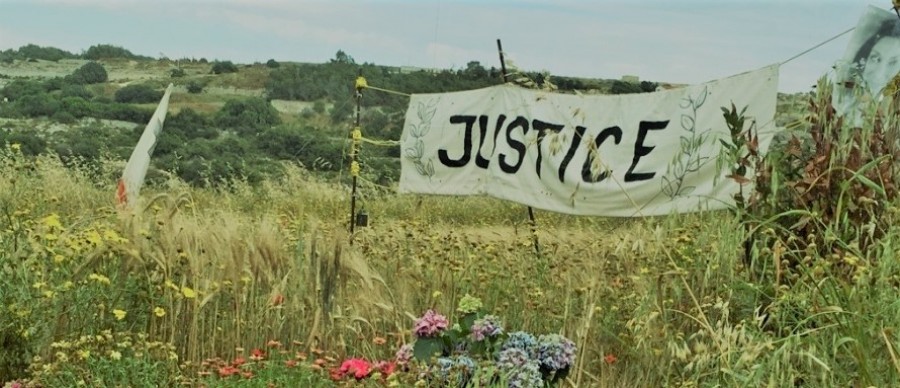[vc_row][vc_column][vc_single_image image=”107234″ img_size=”full”][vc_column_text]EU leaders from Cyprus, France, Greece, Italy, Portugal, and Spain are urged to address the ongoing impunity in the case of assassinated journalist Daphne Caruana Galizia
To: Mr Emmanuel Macron, President of France; Mr Giuseppe Conte, Prime Minister of Italy; Mr Nicos Anastasiades, President of Cyprus; Mr Alexis Tsipras, Prime Minister of Greece; Mr António Costa, Prime Minister of Portugal; and Mr Pedro Sánchez, Prime Minister of Spain.
13 June 2019
Your excellencies,
Journalist Daphne Caruana Galizia was assassinated in Malta by a car bomb on 16 October 2017. There is no process inquiring into the circumstances of the murder. We, the undersigned organisations, have advocated extensively for justice in the case and are closely monitoring the process on the ground.
A report on the assassination, titled “Daphne Caruana Galizia’s assassination and the rule of law, in Malta and beyond: ensuring that the whole truth emerges”, by the Special Rapporteur of the Parliamentary Assembly of the Council of Europe (PACE), Pieter Omtzigt, was adopted by the Legal Affairs and Human Rights Committee meeting in Paris on 29 May 2019.
The report highlights a series of concerns relating to the investigation into the murder of Daphne Caruana Galizia, and Malta is requested to establish an independent and impartial public inquiry within three months to determine whether the state could have prevented the assassination – a call we have made repeatedly. The Committee noted fundamental weaknesses in Malta’s system of democratic checks and balances, seriously undermining the rule of law. This is an alarming situation, particularly in a Council of Europe and European Union member state. The Maltese authorities are called upon to take steps to end the prevailing climate of impunity.
So far, the Maltese government has blocked a public inquiry, leaving journalists continuing to work in Malta at great risk and forcing Galizia’s family to litigate the Prime Minister’s refusal to hold a public inquiry into the assassination. Only a public inquiry can determine how best to guarantee the safety of journalists and prevent future attacks. The Venice Commission Opinion on Malta states Malta’s positive obligations in relation to the assassination of Daphne Caruana Galizia. A public inquiry is the only process that can effectively address these positive obligations. The call for a public inquiry is supported by a resolution by the European Parliament which requests the Maltese government to launch a public inquiry, and calls on the EU institutions and the Member States to initiate an independent international public inquiry into the murder and the alleged cases of corruption, financial crimes, money laundering, fraud and tax evasion reported by the journalist.
By signing the Sibiu Declaration, you have pledged to safeguard Europe’s democratic values and the rule of law. We therefore urge you to address the matter of safety of journalists and ongoing impunity in the case of Daphne Caruana Galizia in your meeting with Prime Minister Muscat in Valletta on 14 June.
Thank you for your attention.
Kind regards,
Dr Lutz Kinkel, Managing Director, European Centre for Press and Media Freedom (ECPMF)
Sarah Clarke, Head of Europe and Central Asia, ARTICLE 19
Annie Game, Executive Director, IFEX
Joy Hyvarinen, Head of Advocacy, Index on Censorship
Ravi R. Prasad, Director of Advocacy, International Press Institute (IPI)
Carles Torner, Executive Director, PEN International
Rebecca Vincent, UK Bureau Director, Reporters Without Borders (RSF)[/vc_column_text][/vc_column][/vc_row][vc_row][vc_column][vc_basic_grid post_type=”post” max_items=”4″ element_width=”6″ grid_id=”vc_gid:1560437482746-8cffafe9-48c7-1″ taxonomies=”8996″][/vc_column][/vc_row]






